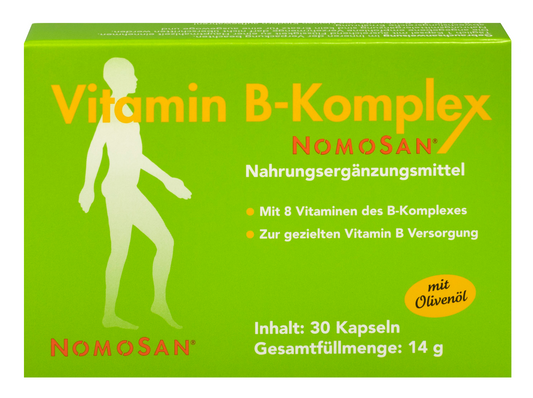Flaxseed, also known as linseed, is gaining popularity as a superfood due to its numerous bioactive components such as α-linolenic acid, lignans and fiber. This natural product not only offers a wide range of nutritional benefits but is also considered a significant factor in preventive healthcare. In this blog post, we will explore the different aspects of flaxseed, from its nutritional composition to its potential health-promoting effects.
The nutritional composition of Flaxseed
Flaxseed is characterized by its high content of α-linolenic acid (ALA), an omega-3 fatty acid. This essential fatty acid plays an important role in the human diet as it helps maintain normal blood cholesterol levels. In addition, flaxseed lignans are known for their antioxidant properties, which can help reduce cell damage caused by free radicals and thus contribute to overall health. Fiber is another significant component of flaxseed that can support digestive function.
Potential health-promoting effects
Cardiovascular health
Studies suggest that regular consumption of flaxseed may have beneficial effects on the lipid profile, particularly by lowering LDL cholesterol levels. This may reduce the risk of cardiovascular disease.
Blood pressure
Flaxseed may also help lower blood pressure, which is also an important factor for heart health.
Glucose regulation
Some research suggests that flaxseed may help regulate blood sugar levels, which is of great interest to diabetics.
Antioxidant properties
The antioxidant properties of flaxseed lignans may help prevent cell damage and slow down the aging process.
Hormonal health
In women in particular, flaxseed lignans may help relieve the symptoms of menopause due to their hormone-regulating properties.
digestion
Due to its high fiber content, flaxseed can aid digestion and prevent constipation.
Skin health
Taking flaxseed can improve the appearance of your skin because the fatty acids it contains can increase skin moisture and relieve inflammatory skin conditions.
Wound healing
Flaxseed can speed up wound healing by reducing inflammation and promoting the growth of new skin cells.
Cancer prevention
Flaxseed contains lignans that have potential anti-cancer properties. These bioactive compounds can slow the growth of tumors and reduce the risk of hormone-dependent cancers, such as breast cancer and prostate cancer. Studies have shown that regular consumption of flaxseed can inhibit the growth of cancer cells. A comprehensive study by Chen et al. (2009) has confirmed the anti-carcinogenic properties of flaxseed lignans by significantly reducing tumor development in preclinical models.
Forms of consumption
There are several ways to incorporate flaxseed into your daily diet to reap its health benefits. Common forms include:
- Whole flax seeds : Can be used as a topping for salads, yoghurt or muesli.
- Ground flax seeds : Provide better bioavailability of nutrients and can be easily used in smoothies, baked goods or as an addition to various dishes.
- Flaxseed oil : Rich in ALA, ideal for dressings and smoothies, but should not be heated to preserve nutrients.
Possible antinutrients
In addition to its many health benefits, flaxseed also contains antinutrient substances such as cyanogenic glycosides (CGs), cadmium, trypsin inhibitors and phytic acid, which can impair the bioavailability of essential nutrients. Consuming ground flaxseed can help minimize these effects and maximize the absorption of valuable nutrients.
Conclusion
The diverse health-promoting effects of flaxseed make it a valuable addition to the daily diet. From supporting cardiovascular health to regulating blood sugar levels to anti-cancer properties, flaxseed shows remarkable potential as a natural health remedy. However, it is important to pay attention to the form of consumption to ensure maximum bioavailability of the bioactive components and minimize the potential antinutrients.
Sources
- The Role of Flaxseed in Improving Human Health - PubMed (nih.gov)
- Flax and flaxseed oil: an ancient medicine & modern functional food - PMC (nih.gov)
- Flaxseed improves lipid profile without altering biomarkers of bone metabolism in postmenopausal women - PubMed (nih.gov)
- Meta-analysis of the effects of flaxseed interventions on blood lipids - PubMed (nih.gov)
- Flaxseed Reduces Cancer Risk by Altering Bioenergetic Pathways in Liver: Connecting SAM Biosynthesis to Cellular Energy - PMC (nih.gov)
- Flaxseed supplementation on glucose control and insulin sensitivity: A systematic review and meta-analysis of 25 randomized, placebo-controlled trials | Request PDF (researchgate.net)
To learn more about how consuming flaxseed could help you with constipation, click here: https://nomosan.com/blogs/darmgesundheit-fordern/die-wirkung-von-leinsamen-und-flohsamen-gegen-verstopfung-zwei-bedeutende-studien
If you are also interested in psyllium and its benefits, click here: https://nomosan.com/blogs/darmgesundheit-fordern/flohsamen-ein-vielseitiges-naturprodukt-fur-gesundheit-und-ernahrung

